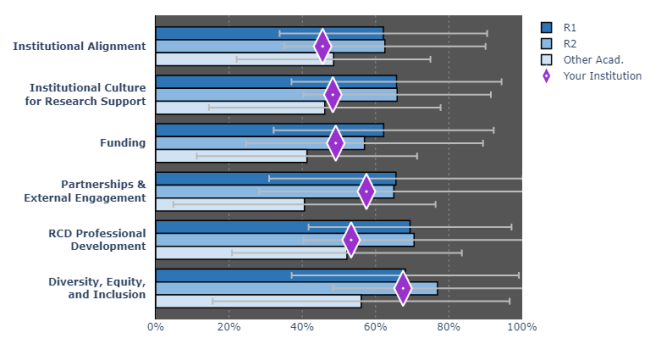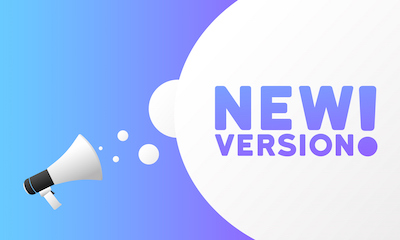Attending the PEARC24 conference and would like to learn more about how to use the CaRCC Capabilities Model? We are offering a full-day workshop “Understanding the CaRCC Capabilities Model Assessment Tools and How Best to Use them at Your Institution” on Monday, July 22. Just select the workshop when you register for the PEARC24 conference; there’s no additional cost.
About the CaRCC Capabilities Model
The CaRCC Capabilities Model allows participating institutions to:
- Assess their support for computationally- and data-intensive research.
- Identify potential areas for improvement.
- Understand how the broader community views Research Computing and Data support.
Contributing institutions help build the Community Dataset, and enrich the resulting picture we have of our community. You will get access to the benchmarking functionality on the new portal that compares your assessment to the community at-large, as well as segments of the community. As a contributor, you will also get access to more detailed reporting functionality on the new portal, to dig into the data and create custom visualizations.

About the workshop
The workshop will provide an introduction to the CaRCC Capabilities Model and how institutions approach using the Capabilities Model assessment tools to improve their strategic planning and make the case for increased campus support to advance computationally- and data-intensive research and education. Workshop participants will:
- Gain an introduction to the CaRCC Capabilities Model and the associated assessment tools and community data exploration portal.
- Explore and discuss the practical aspects of conducting an assessment for an institution.
- Develop a clear understanding of the tools and gain experience working through the assessment questions.
- Discuss and compare effective practices for leveraging assessment and benchmarking data in communications with campus leadership.
- Build connections with peers at similar institutions and learn about the community resources available to support participating institutions.
Check back here for a detailed event agenda, coming soon!


